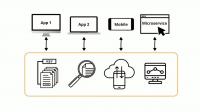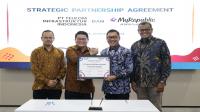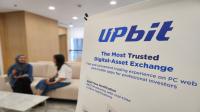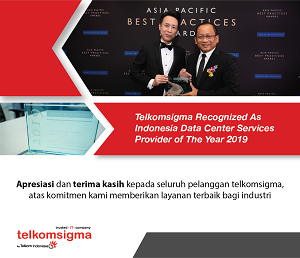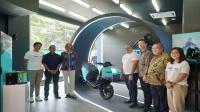Smart cities demand smart public transport
07:53:17 | 02 Dec 2016

ilustrasi
GOTHENBURG (IndoTelko) - Berg Insight released new findings about the smart cities market and in particular Intelligent Transport Systems (ITS) for public transport.
Berg Insight is of the opinion that the market is in a growth phase which will continue in the years to come. The public transport market is impacted by a number of trends, including several ITS-related developments that can alter the playing field for the solution providers on this market.
Several parallel technology developments are currently transforming the public transport market, resulting in improved competitiveness as well as integration with alternative modes of transportation.
Public transport services are expected to develop significantly in the upcoming years. In order to be a viable alternative for everyday transportation, services must be predictable, comfortable and time-efficient.
“Multimodal journeys are often needed to ensure door-to-door travel approaching the flexibility of the car”, said Fredrik Stalbrand, IoT/M2M Analyst, Berg Insight.
He adds that ITS can have important influence on the quality of journeys involving several transport modes operated by different companies. Real-time information has traditionally seldom been shared between independent actors, making public transport very sensitive when delays occur and connecting services are not notified.
“Closer integration and open data sharing between the systems of the ever-increasing number of companies operating public transport services on the deregulated public transport market is thus a prerequisite to achieve competitiveness”, continues Mr. Stalbrand.
Better integration of collective transport modes with private modes such as cars and bikes will further increase the overall public transport utilisation. The so-called first and last mile commute problem, referring to the beginning and end of journeys being the most challenging parts, causes many people to choose the car for the entire journey.
“New initiatives such as park ‘n’ ride facilities, bike sharing programs and real-time car ridesharing solutions are paving the way for the future”, concludes Mr. Stalbrand.
Berg Insight also released a new market report covering the cargo tracking market. The number of active tracking devices deployed for cargo loading units including trailers, intermodal containers, air cargo containers, cargo boxes and pallets reached 2.9 million worldwide in 2015.
Growing at a compound annual growth rate (CAGR) of 23.2 percent, this number is expected to reach 8.1 million by 2020. The North American trailer telematics market is the most developed segment, followed by intermodal container tracking which has achieved considerable growth in the past years.
Berg Insight ranks ORBCOMM as the largest vendor of tracking solutions for cargo loading units, having a significant installed base of trailers as well as containers. The company has been highly involved in M&A activity related to real-time asset tracking, including acquisitions such as Euroscan and WAM Technologies.
The latter was involved as a subcontractor in AT&T’s major project for Maersk which has rolled out a system for real-time tracking of its entire fleet of 270,000 refrigerated containers. The North American trailer telematics market is dominated by ORBCOMM, SkyBitz, Omnitracs, Spireon and I.D. Systems, while leading Europe-based players include Idem Telematics, Blue Tree Systems, Schmitz Cargobull and Novacom.
Notable providers moreover include FreightWatch International and Numerex, having the lion’s share of their installed bases in the general cargo and container tracking segments respectively. Other major players in the container tracking space for example include Envotech and Savi Technology, while major vendors in the segment of air freight cargo tracking include OnAsset Intelligence and Sendum Wireless.(es)
Baca juga :
•
•
•
Artikel Terkait
-
 English Ver. - 04:00:00 | 19 May 2024The real estate sector is observably shifting toward sustainability
English Ver. - 04:00:00 | 19 May 2024The real estate sector is observably shifting toward sustainability -
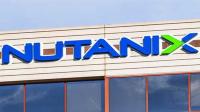 English Ver. - 05:21:00 | 03 May 2024Primary drivers for IT infrastructure investments in the next year include ransomware prevention
English Ver. - 05:21:00 | 03 May 2024Primary drivers for IT infrastructure investments in the next year include ransomware prevention
Rekomendasi
Berita Pilihan
More Stories
PR Newswire











